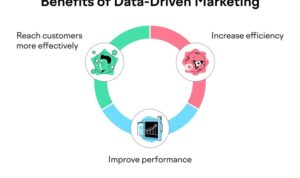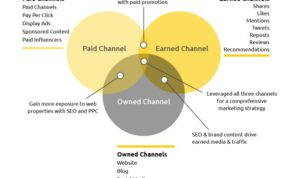Event Marketing for Small Businesses sets the stage for this enthralling narrative, offering readers a glimpse into a story that is rich in detail with American high school hip style and brimming with originality from the outset.
From discussing the importance of event marketing for small businesses to outlining successful strategies and engaging event types, this guide dives deep into the world of promoting brands through events.
Importance of Event Marketing for Small Businesses

Event marketing is a crucial strategy for small businesses to connect with their target audience in a meaningful and engaging way. By organizing events, small businesses can create a personal connection with customers, showcase their products or services, and build brand awareness.
Examples of Successful Event Marketing Strategies
- Pop-Up Shops: Setting up temporary retail spaces in high-traffic areas to attract new customers and generate buzz.
- Workshops and Classes: Hosting educational events related to your industry to position your business as an expert and attract potential clients.
- Community Events: Sponsoring or participating in local events to show support for the community and increase brand visibility.
How Event Marketing Builds Brand Awareness and Customer Loyalty
Event marketing allows small businesses to showcase their unique brand personality and values directly to their target audience. By creating memorable experiences at events, businesses can leave a lasting impression on attendees and foster customer loyalty. Additionally, events provide an opportunity for businesses to collect feedback, engage with customers face-to-face, and strengthen relationships, leading to repeat business and positive word-of-mouth referrals.
Types of Events Suitable for Small Businesses

When it comes to promoting products or services, small businesses need to choose the right type of events to maximize their impact and reach their target audience effectively. Here are some types of events that are suitable for small businesses:
Pop-Up Shops, Event Marketing for Small Businesses
Pop-up shops are temporary retail spaces that allow small businesses to showcase their products in a physical location for a limited time. These events are great for creating buzz, generating sales, and reaching new customers.
Workshops and Classes
Hosting workshops or classes related to your products or services can help position your small business as an expert in your industry. This type of event allows you to educate your audience, build trust, and establish connections with potential customers.
Networking Events
Networking events provide small businesses with the opportunity to connect with other professionals, potential partners, and customers. By attending or hosting networking events, small businesses can expand their reach, build relationships, and gain valuable insights.
Trade Shows and Expos
Participating in trade shows and expos allows small businesses to showcase their products or services to a larger audience. These events provide exposure, networking opportunities, and a chance to stay up-to-date with industry trends.
Virtual Events vs. In-Person Events
While in-person events offer the advantage of face-to-face interactions and a more personal touch, virtual events can be cost-effective, reach a wider audience, and provide flexibility in terms of timing and location.
Leveraging Community Events
Small businesses can leverage community events such as local fairs, festivals, or charity events to connect with their target audience on a more personal level. By participating in or sponsoring community events, small businesses can show their support for the local community and strengthen their brand presence.
Planning and Organizing Successful Events: Event Marketing For Small Businesses
Planning and organizing successful events is crucial for small businesses looking to make an impact through event marketing. It involves careful strategizing, budgeting, and setting clear objectives to ensure the event is a success.
Step-by-Step Guide
- Define Your Goals: Start by outlining what you want to achieve with the event. Whether it’s increasing brand awareness, generating leads, or driving sales, clear goals will guide your planning process.
- Set a Budget: Determine how much you can allocate for the event and break it down into categories such as venue rental, marketing materials, and staff expenses.
- Choose the Right Venue: Select a venue that aligns with your brand and can accommodate the size and nature of your event.
- Develop a Timeline: Create a detailed timeline leading up to the event, including tasks such as promotion, logistics, and day-of activities.
- Promote Your Event: Utilize various marketing channels to promote your event, including social media, email marketing, and partnerships with influencers or local businesses.
- Engage Attendees: Plan interactive activities, workshops, or demos to keep attendees engaged and create a memorable experience.
- Evaluate and Adjust: After the event, assess the outcomes against your goals and gather feedback from attendees to improve future events.
Budgeting and Resource Allocation Tips
- Prioritize Expenses: Allocate more resources to key aspects of the event that directly impact your goals, such as marketing and guest experience.
- Consider Sponsorships: Partnering with local businesses or securing sponsorships can help offset costs and expand your reach.
- Negotiate Contracts: Negotiate with vendors and suppliers to get the best deals and maximize your budget’s impact.
- Track Expenses: Keep a detailed record of all expenses to ensure you stay within budget and can make informed decisions for future events.
Setting Clear Goals and Objectives
- Measuring Success: Establish key performance indicators (KPIs) such as attendance numbers, social media engagement, or lead generation to evaluate the event’s impact.
- Alignment with Business Objectives: Ensure that your event goals align with your overall business objectives to drive meaningful results and ROI.
- Flexibility: Be prepared to adjust your goals and strategies based on real-time feedback and insights to maximize the event’s success.
Promoting Events and Driving Attendance
To ensure a successful event, small businesses need to effectively promote their events and drive attendance. Utilizing digital marketing channels such as social media and email can be instrumental in reaching a wider audience and generating buzz around the event.
Utilizing Social Media and Email Marketing
- Utilize social media platforms such as Facebook, Instagram, and Twitter to create event pages, share engaging content, and interact with potential attendees.
- Send out targeted email campaigns to your subscriber list with event details, special promotions, and exclusive invites to encourage attendance.
- Engage with influencers or local bloggers to promote your event to their followers and reach a larger audience.
Leveraging Partnerships and Collaborations
- Partner with complementary businesses or organizations to co-host events, cross-promote, and tap into each other’s customer base.
- Collaborate with local media outlets or community groups to get coverage and publicity for your event, increasing visibility and attendance.
- Offer incentives such as discounts, giveaways, or exclusive access to encourage partners to promote the event to their networks.
Creating Buzz and Incentivizing Attendance
- Create a sense of exclusivity by offering limited tickets, early bird discounts, or VIP packages to incentivize attendees to secure their spot early.
- Host pre-event contests or challenges on social media to engage your audience, create excitement, and build anticipation for the event.
- Utilize interactive elements such as live polls, Q&A sessions, or photo booths during the event to keep attendees engaged and encourage social sharing.





